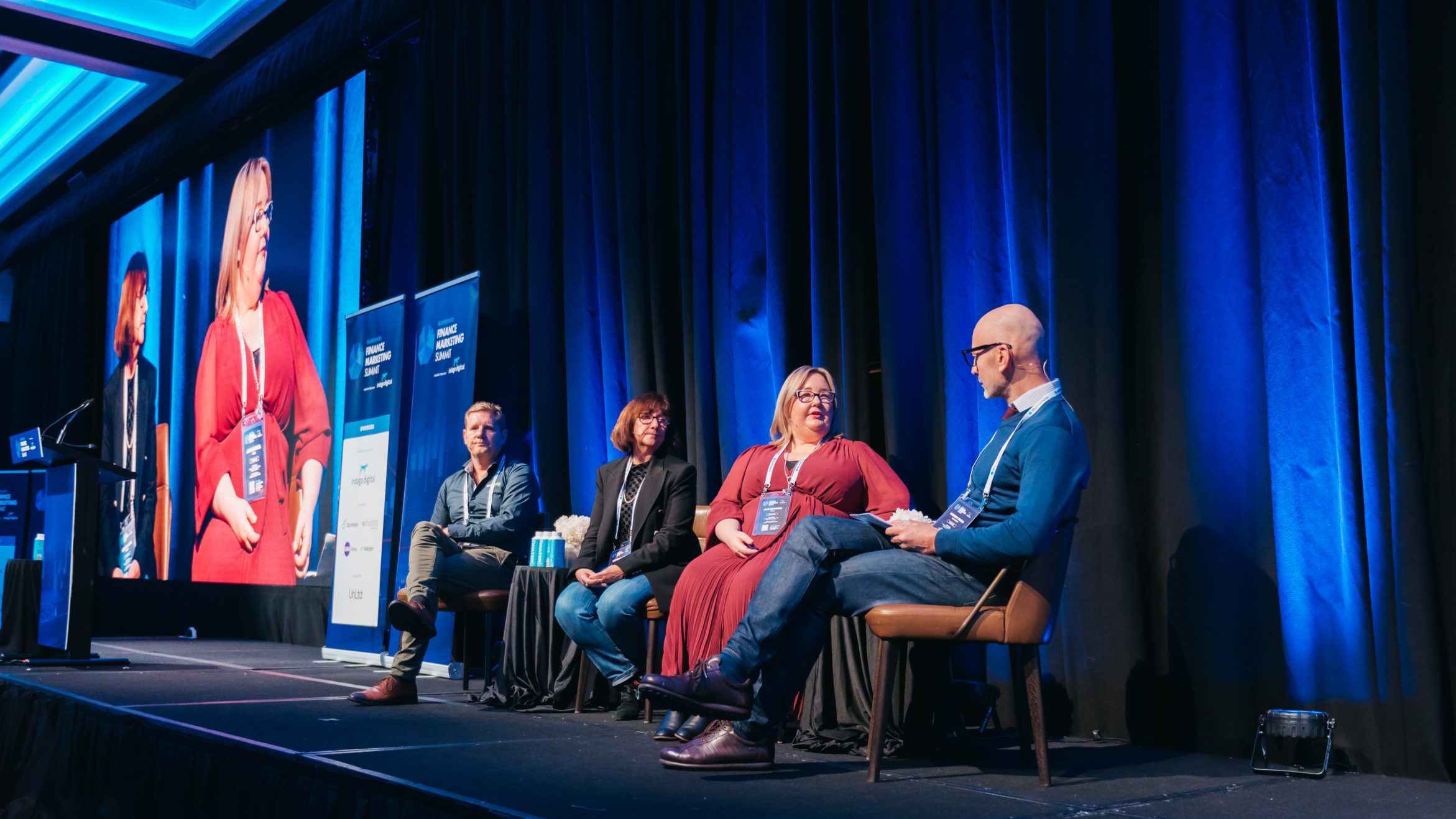Finance Marketing Summit: The big business of small business marketing in tumultuous times
Mumbrella’s Finance Marketing Summit featured a range of seminal panels on the intersection between finance and advertising. In a session moderated by The Royals’ managing partner Andrew Siwka, three experienced finance marketers dissected the unique challenges of finance marketing to SMEs in periods of uncertainty.
Siwka was joined by a panel of marketers, including Peter Thomas, chief people and customer officer at Smartpay, Deborah Kytic, director of marketing at Prospa and Jane Betschel, head of marketing & digital at MYOB.


